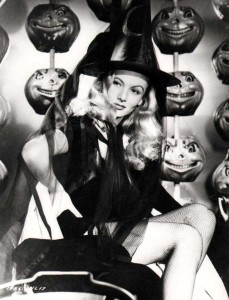 There’s quite a bit of vitriol splashed around in this new post by Sam Harris, and, as so often with his work, there’s also much that’s worth discussing at length, but for now let’s just note that the point that he makes in the following two sentences is hugely important, well worth saying and largely true:
There’s quite a bit of vitriol splashed around in this new post by Sam Harris, and, as so often with his work, there’s also much that’s worth discussing at length, but for now let’s just note that the point that he makes in the following two sentences is hugely important, well worth saying and largely true:
I have long struggled to understand how smart, well-educated liberals can fail to perceive the unique dangers of Islam. In The End of Faith, I argued that such people don’t know what it’s like to really believe in God or Paradise—and hence imagine that no one else actually does.
I use the word “largely”, because there is at least one major exception to what Mr. Harris is arguing. Like it or not, the religious impulse is a very common human characteristic and it is one that many of those “smart, well-educated liberals” themselves share except that it has—for them—to manifest itself in a nominally secular guise. This might once have taken the form, say, of a fierce commitment to ‘political religions’ such as the communism of nearly a century ago (a millennial cult if ever there was one) and today, might more commonly find expression in, perhaps, various types of environmentalist faith.
I should add that I am assuming, perhaps wrongly (I note that he carefully refers to “really” believing in God, a qualification that may mean that his criticism may also be directed at certain only mildly religious people) that the clever folk to whom Mr. Harris is referring are atheists or agnostics. The question of why genuinely religious liberal intellectuals refuse to confront the spiritual reality of what drives some jihadists to atrocity is yet another topic for another time.
But back to Sam Harris:
I also have no problem with spiritual devotion, ecstasy, and awe—in fact, I think they are among the most important experiences a human being can have. I just object to the incredible ideas that surround such experiences in every church, synagogue, and mosque. I also worry that certain religious beliefs make devotion, ecstasy, and awe both divisive and dangerous. Again, my tolerance for difference is much higher than my critics understand. I’m not a scared white guy who is put off by the howls of the natives. In fact, I’ve done a fair amount of howling with the natives myself. I know what these people are experiencing, and I value many of the same experiences.
The post is illustrated with well-chosen videos of ecstatic spiritual devotion. They are fascinating, at times (briefly) beautiful, at times disturbing, at times dull, and, more often than not, depressing, glimpses of intellectual and psychological places where I would rather not go for too long, not out of fear, Mr. Harris, but because, at best, they do nothing for me, and at worst, well…
Devotion, ecstasy and awe: on the whole, no thanks.
Mr. Harris may well have different tastes. He writes:
Unlike many of my critics, I recognize that these practices profoundly affect people. In fact, I’ve spent thousands of hours doing practices of this kind.
And that’s fine (chacun à son goût, and all that), but to say this is not:
Unless you have tasted religious ecstasy, you cannot understand the danger of its being pointed in the wrong direction.
Not so: All it takes is some knowledge of history and a willingness to recognize—as Mr. Harris clearly does— some very uncomfortable truths about the nature of our species.
 Florida.newszap.com reports:
Florida.newszap.com reports: 








